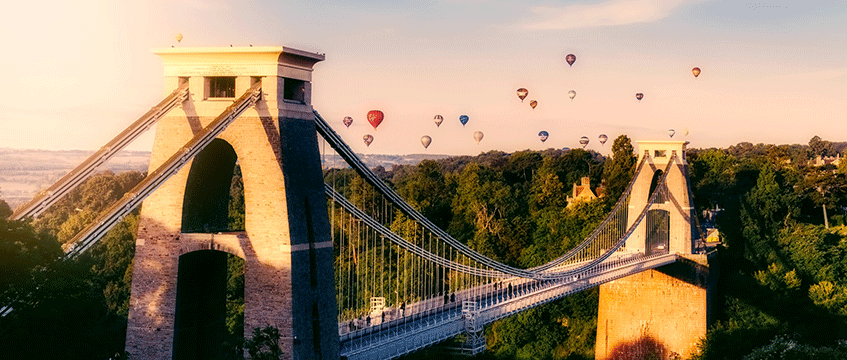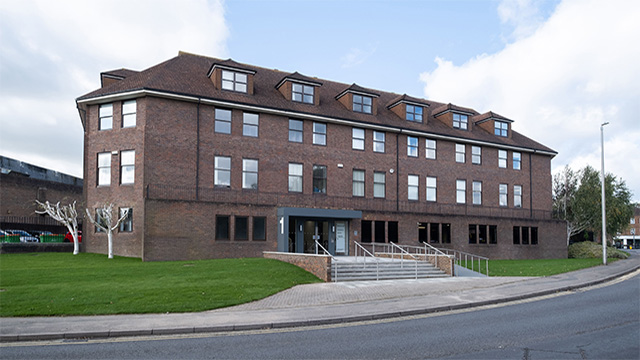The Future of Bristol: A city core’s renaissance
Perhaps film director Abraham Polonsky’s suggestion that “money has no moral opinions” was once true. But no longer, says Paddy Hales, head of Savills’ Bristol office.
“The fact of it is, money does have a moral opinion – I chat this through with the younger members of staff here, who certainly have a different background to myself, and also my children,” Hales says. “The corporate world now is moving so quickly in the right direction. That demand for zero carbon, or things that would have a strong social impact – this is where people want to be seen to invest their money.”
There’s an opportunity here for real estate, adds Hales, speaking on EG’s Future of Bristol podcast. As cities plot a way out of the Covid-19 crisis, they must do so in a way that rethinks the ways in which they look after their own.
Perhaps film director Abraham Polonsky’s suggestion that “money has no moral opinions” was once true. But no longer, says Paddy Hales, head of Savills’ Bristol office.
“The fact of it is, money does have a moral opinion – I chat this through with the younger members of staff here, who certainly have a different background to myself, and also my children,” Hales says. “The corporate world now is moving so quickly in the right direction. That demand for zero carbon, or things that would have a strong social impact – this is where people want to be seen to invest their money.”
There’s an opportunity here for real estate, adds Hales, speaking on EG’s Future of Bristol podcast. As cities plot a way out of the Covid-19 crisis, they must do so in a way that rethinks the ways in which they look after their own.
Hales’ fellow panellists agree. The events of the pandemic have shown the importance of community and of social purpose, and that’s not a lesson the real estate industry can turn away from.
For James Durie, chief executive of the Bristol Chamber of Commerce and Initiative, the city has not always shown itself to be “as unified as it can be”. But it is a city that must be willing to address its past, as shown by the debate over the future of a statue of slave trader Edward Colston that was pulled down by Black Lives Matter supporters last year. Bristol ignores the benefits of diverse communities at its peril, Durie says. “How do we consciously think about that in city planning terms?”
And at the University of the West of England, Elena Marco, professor in teaching and learning in architecture and built environment, wants developers and investors in Bristol to place an even greater focus on placemaking and linking communities old and new.
“One of the things the new schemes are not doing so successfully is connecting the placemaking that the city already has and the green spaces,” she says. “For me, that’s a missed opportunity in a way. It’s really important to [consider] how much do you build, but the quality of those spaces is what will make Bristol successful.”
Glass half-full
The city has everything to play for. To say that Bristol, or any city for that matter, has suffered during the past 18 months is to state the obvious. But business leaders are nonetheless trying to find glimmers of optimism as a route to recovery is forged.
The short-term effect of the pandemic on the city has been “catastrophic”, Hales says. “But long term, actually, I think there are some benefits that will come out of it, just trying to see the glass half full,” he adds.
That includes now “a renaissance of our city core” he says, which was “hollowing out” two decades ago.
“Bristol’s really well suited to benefit from this change in how people want to live and work in the city cores,” he adds. “You could argue that 20 years ago our city centres just became shopping malls – which are needed, but there was too much of a focus on that. Now we’re seeing this push towards living and working in our city cores.”
Office lettings in the city continue, he says. Durie points to companies that have set up shop in the city including Dyson and Pure Electric. Businesses need to be where their employees want to live, and more will follow.
“If they want to get people who want that kind of urban living, they need to be in a city centre,” Durie adds. “People want to be in the thrust of a thriving, interesting city with a great cultural, music and food scene. It’s playing to so many of Bristol’s strengths. But just at this present moment, a lot of that we’ve had to press the pause button on. But it will come back. The vaccine shield that’s in place now will continue.”
Stepping stone
Residential demand “has maintained, if not increased” in the city centre, Hales says. “There is a push towards quality of life. I think it’s great that people are able to move to places they want to live and want to work. And we tick both those boxes.”
But for supply to keep pace with demand, the city must build more, EG’s panellists agree. Have permitted development rights helped?
Hales argues so, and not only because PDR allowed for the removal of unloved office space and reinvestment in the remainder. “The first permitted development was a stepping stone to getting people into the city core. Students made that first step into the city core because no one else wanted to live there, and they got that through permitted development,” he says. “Without that, I don’t think we would have seen the renaissance away from the harbourside that we’ve seen in the city core.”
Marco fears otherwise, arguing that PDR schemes have sometimes compromised quality. “I would say there is a lot of game playing in relation to what is originally in a planning application, and what ends up being built,” she says, adding: “You have to take into consideration that sometimes we are not building good places for the future, for even now.”
It comes back to that idea of linking Bristol’s history with its future through its built environment – in a way that does both justice.
“One of the first times I came to Bristol, I think it was 22 years ago… it was so concrete-like,” Marco says. “You couldn’t experience the highlights. You couldn’t experience the cathedral. You couldn’t experience the oldest theatre in Europe. You couldn’t experience St George’s. Those things now have started transforming the cultural scene.”
Marco is adamant such highlights should be cherished. “I’m an architect, I love beautiful things,” she says, then apologises for the sentiment. Bristol’s real estate industry won’t see that as anything to be sorry about.
To send feedback, e-mail tim.burke@eg.co.uk or tweet @_tim_burke or @EGPropertyNews
Image © David Mark/Pixabay
Discover which agents are most active in Bristol >>











